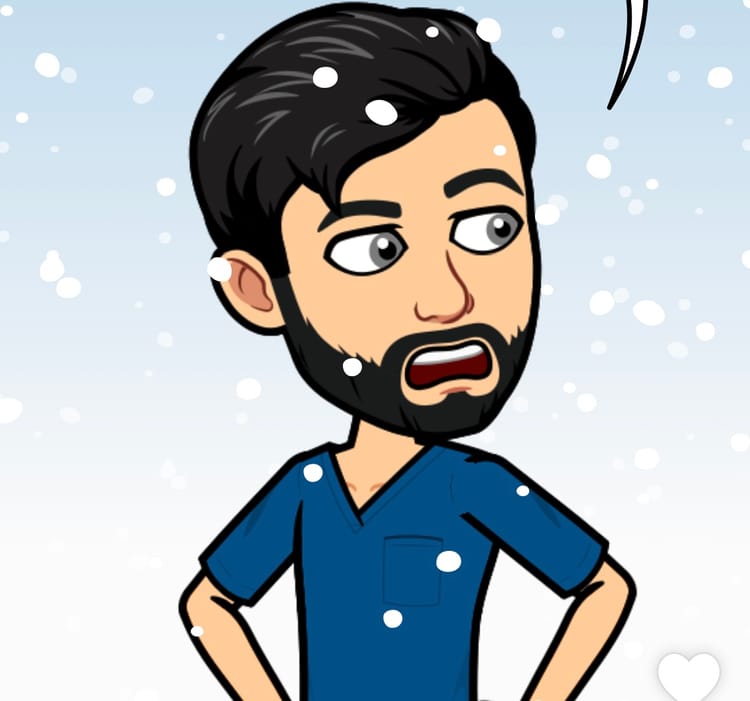Dissecting Residency - A guide to thrive for first-year residents

Welcome to arguably the best period of your life! (since internship)
Firstly, give yourself a pat on the back, a round of applause for making it through MBBS, internship and a ridiculously structured (NEET or NEXT) post-graduate medical entrance exam. You beat the odds and you deserve all the credit!
Residency is a roller-coaster, probably nothing like anything you’ve had to deal with before. You’re working (yes, finally working!) for living, your opinions matter (surprising, right?) and here’s the icing on the cake - you finally get to lead the romanticised life you saw on House MD, Scrubs, The Good Doctor and Grey’s Anatomy! Or are you?
Here’s my ten-point guide to understanding, comprehending and surviving residency, especially as a first-year resident:
- As an intern, you probably felt like you’re at the bottom of the food chain, but you were wrong. The first year residents are the true bottom-feeders. For everything that goes wrong in the hospital, the first-year resident is the first responder. Right from a patient crashing to the printer not working. Your role, is that of a human multi-tool, a Swiss-army knife of sorts. It’s not the worst thing in the world. In addition to the skills you require in your specialty, you pick up some tricks of the trade you never thought you’d need.
- As a first year resident, you groom (for lack of a better word) the interns. Keeping them happy and healthy (read: well fed) helps you a lot in the long run. You just need that one night when your patient is crashing and all the interns have bailed on you to learn this lesson the hard way. Remember as an intern, how annoying you found it to collect that USG report or monitor that oxygen saturation? Ironically, as a resident, your life depends on your intern doing just that! You’ll learn that your only leverage against interns are their attendance. They have a lot to learn but nothing else to lose. At this point you will miss your internship dearly. But there is a silver lining. You keep getting a fresh batch, so the best is not forever, but the worst doesn’t stick. Training a fresh brew every couple of days is a test of your leadership skills, which is something you would like to improve during your residency.
- If you’ve spent your internship sleeping on chairs in the SICU and charging your phone from 1% to 9% for that brief ten minutes at the nursing station, your first year of residency will be the same, but on LSD. Don’t expect comfort anytime soon. Just one mishap later (believe me, it will happen), you will realise the fundamental difference between internship and residency. As an intern, you are not responsible for anything that happens in the hospital, but as a resident, you technically responsible for almost everything that happens. Just like in your internship, nothing will ever be available. There will be no drugs in the pharmacy, no micropore tape in the ward and no admission slip in the OPD. When you send an intern out and they come back empty handed, you will have to go out there and get it yourself. Escaping our comfort zone, is what we dread. Your residency will drag you out of it, but this will also help you learn, be self-sufficient and independent.
- Speaking of being self-sufficient, it wouldn’t be the worst idea to always carry a bag with all your essentials - water, food (biscuits/chocolates), a stethoscope (should your speciality demand it), instruments/emergency medicines your speciality requires, a notebook etc. You won’t believe the number of times a senior will ‘borrow’ your pen only to make it theirs for the day. You’ll be running in-between wards on duty days, and it is then that your self-sufficient bag will save the day.
- Your department is your new fraternity as well as your family. You may feel it is dysfunctional sometimes (or most of the time!) - but it is a family nonetheless. Intra-departmental as well as inter-departmental rivalry is common so please don’t get too overwhelmed. Sometimes, the banter is fun and the memes they generate will leave your rolling on the floor with laughter for days.
- I had mentioned a while ago that your opinions matter now. And that's true. Residency is the time to hone your decision making skills. As you get more adept in your speciality, your seniors and consultant will only review cases. Your findings during daily examination and your management skills are given the due respect and believe me, it feels great. You can use this period and try alternate management regimens for patients after seeking your consultant’s permission.
- Lets not forget about research! As a resident you now get to (have to) write a dissertation and publish papers. For some of you, it has probably been a fantasy to dip your hands into medical research after hearing about various multi-centric clinical trials during your undergraduate days. The time as finally come. Every resident gets a guide, and your job is to latch on to him or her like a leech and suck the last morsel of knowledge that trickles out. Also publishing i.e. seeing your name in print in a peer-reviewed indexed journal is a whole other experience altogether. Research humbles you and is a silent gift that residency gives you.
- I almost forgot to mention that admist OPDs, OTs, ward, rounds, duties and everything else in-between, you also have to study! Remember when you feel asleep reading all the Harrison’s, Bailey’s, Parson’s and Robbin’s in the middle of the day? Now you have to stay awake and read them in the middle of the night. You’re a complete resident if you can squeeze in an hour or two of study-time admist your cracker of a schedule.
- You’re a specialist in-training now and therefore it is time to make room in your life for conferences and CME sessions. Arguably, the only time you get to suit up, dress up and get treated like royalty. You are on the fringe of being a part of latest cutting edge tools and techniques in your specialty as well as are the future in your specialty. These occassions are where you update yourself to start feeling like one.
- Lastly, there are no more items, class tests, seminars, exams (except for the final exam). You are a student, a doctor, a surgeon, a clinician, a scholar and a decision maker. The hospital is going throw everything at you. Even on your worst days, just show up - and that will do the trick. And on all other days, it will be like living the dream. This is your endgame.
My name is Dr. Anujeet Paul. I’m a final year Ophthalmology resident and this is the guide I wish I had when I joined residency.
Also read: Deciding a residency in Ophthalmology: Here’s what you need to know
If you found this article interesting, you may consider signing up for my weekly newsletter where I share snippets from the world of medicine and what I've learnt each week. Click here: Freezethawed: The Weekly Newsletter.
You can read my newsletters by clicking here.
Additionally, I would be doubly grateful if you would share it with your friends, family and peers.
I've also shared my honest thoughts on choosing Ophthalmology as a residency. Click here to check it out.
You may reach out to me at: contact@anujeetpaul.com
You may connect with me on Instagram or Twitter too!
References:
TV Shows - House MD, Scrubs, The Good Doctor, Grey’s Anatomy
Medical text books - Harrison’s Principles of Internal Medicine, Bailey and Love’s Short Practice of Surgery, Parson’s textbook of Ophthalmology, Robbins and Cotran - Pathologic Basis of Disease




